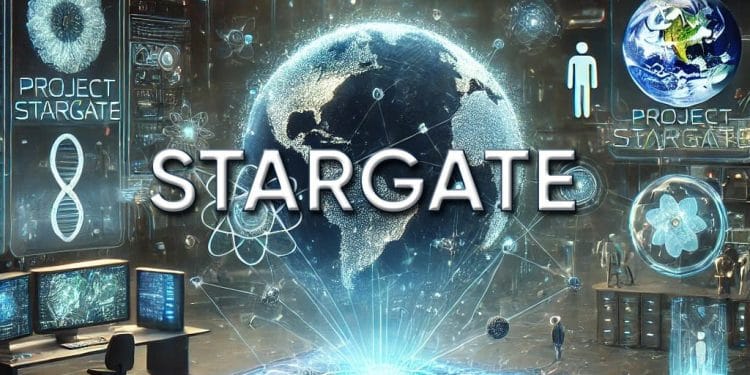In a groundbreaking announcement that has sent shockwaves through the tech world, Project Stargate, a highly secretive AI initiative, has been unveiled to the public. Described as “the most ambitious leap in artificial intelligence research to date,” the project has promised to reshape industries and redefine the boundaries of what AI can achieve.
The Vision Behind Stargate
Project Stargate, spearheaded by a coalition of leading tech companies, research institutions, and government agencies, aims to create an AI system capable of understanding and interacting with the world in ways previously considered science fiction. Unlike traditional AI systems that excel in narrow, task-specific domains, Stargate is designed to be a universal intelligence platform, seamlessly adapting to a myriad of applications, from healthcare and education to space exploration and climate modeling.
Dr. Elena Vasquez, the project’s chief scientist, shared her enthusiasm during the unveiling event. “With Stargate, we’re building an AI that not only processes data but also deeply comprehends it. This is about creating a system that collaborates with humanity, enhancing our capabilities rather than replacing them.”

Revolutionary Technologies at Its Core
At the heart of Project Stargate is a suite of cutting-edge technologies. These include:
- Hyper-Adaptive Neural Networks: Stargate’s neural architecture allows it to learn from vastly diverse data sources in real-time, making it capable of solving problems across domains.
- Quantum Computing Integration: Leveraging the power of quantum computing, Stargate can perform computations that would take traditional supercomputers years to complete, opening up new possibilities in areas like molecular modeling and cryptography.
- Ethical AI Frameworks: Recognizing the importance of responsible AI, Stargate incorporates advanced ethical decision-making protocols, ensuring its outputs align with societal values and legal standards.
Implications for Society
The potential applications of Stargate are staggering. In healthcare, the system could analyze complex medical data to develop personalized treatment plans or identify early signs of diseases. In environmental science, Stargate’s modeling capabilities could help predict and mitigate the impacts of climate change. Additionally, its adaptability makes it a valuable tool for educational institutions, offering tailored learning experiences for students worldwide.
However, the project has not been without controversy. Critics have raised concerns about data privacy, the potential for misuse, and the implications of creating an AI with such advanced capabilities. Advocacy groups have called for greater transparency and regulatory oversight to ensure Stargate’s development aligns with public interests.
Looking Ahead
Despite these challenges, the optimism surrounding Project Stargate remains high. Industry experts believe it marks the beginning of a new era in artificial intelligence, one where humans and machines work in harmony to tackle the world’s most pressing problems.
“This is not just a project,” Dr. Vasquez concluded. “It’s a movement. We are standing at the threshold of a future where AI doesn’t just augment our reality but transforms it for the better.”
As the world watches closely, one thing is certain: Project Stargate has the potential to leave an indelible mark on history, ushering in innovations that could redefine what it means to be human in the age of artificial intelligence.














